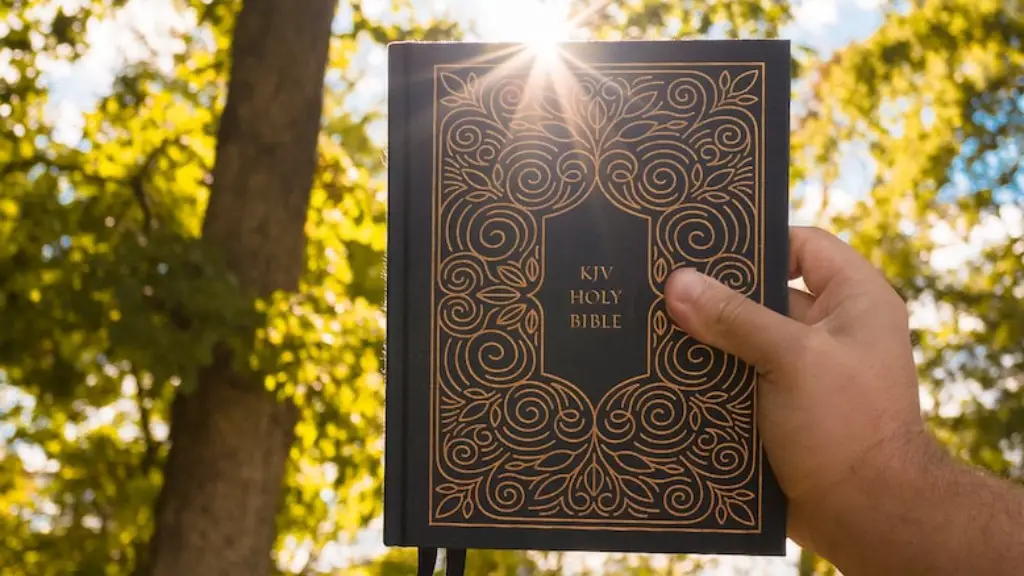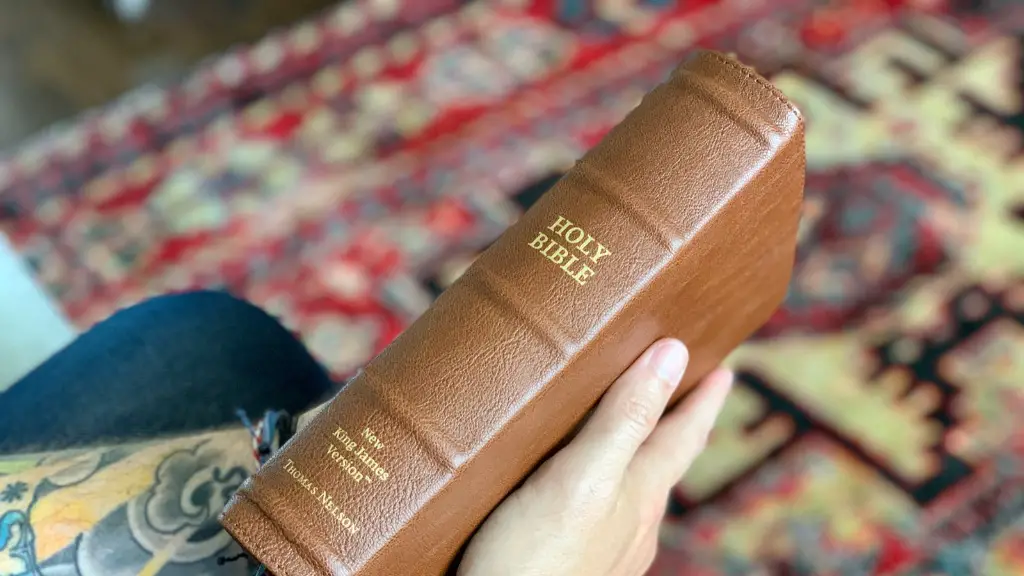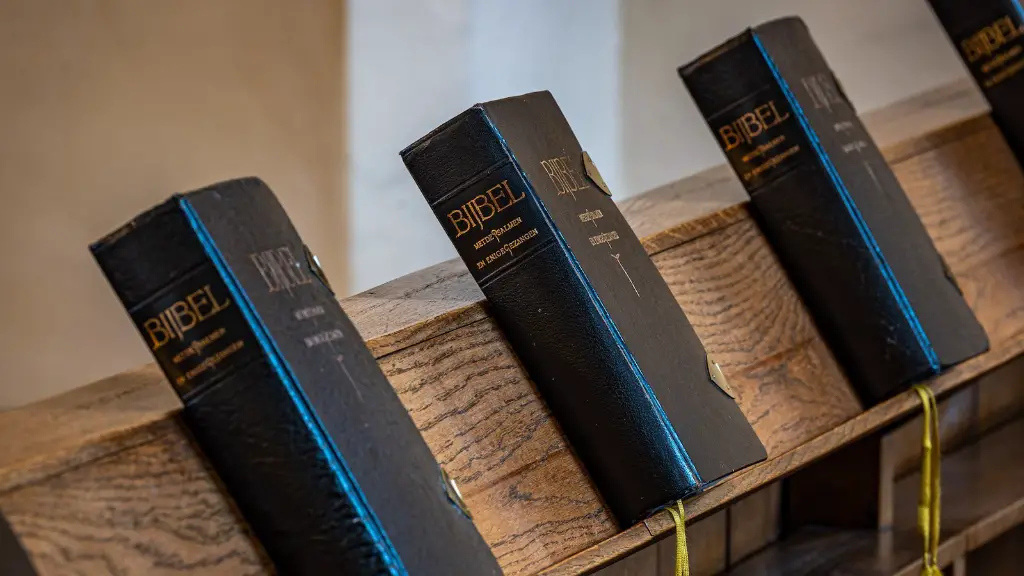The Bible’s Historical Sheba
In the Bible, Sheba is mentioned as an ancient queen from across the seas. The Bible records her visit to King Solomon of Israel. Sheba is said to have come from the nearby region of Ethioia, located in the mountains of Arabia, Ethiopia, Yemen and Eritrea. Sheba is described as a powerful queen who, along with her court, visited King Solomon at his palace. According to the Bible, she came to Jerusalem to seek out his wisdom and wisdom of the Israelites.
During her visit, Sheba is said to have given King Solomon many gifts including gold, spices, and precious stones. She also presented him with a large number of camels and other animals. This would have been a great display of wealth, power, and prestige. It is believed that her court of dignitaries included women as well, which is indicative of the role of women at the time.
Sheba’s visit and gift-giving was a highly symbolic exchange. She was seen as bringing knowledge, wisdom, and culture to King Solomon and his people. She was also believed to bring wealth and security to the Kingdom of Israel. This tradition of exchanging gifts between kingdoms as symbol of alliance is widespread in many ancient societies.
As for what happened to Queen Sheba, the Bible does not explain. Whether she and her court members left peacefully or not is not stated in the Biblical text. While some Biblical scholars believe she was given hospitality and respect, others view her visit as a threat to the Israelite kingdom. Whatever the truth is, Queen Sheba remains shrouded in mystery and will likely remain one for many years to come.
Religion Then and Now
The Sheba story from the Bible is popular among believers of both Judaism and Christianity. It demonstrates how religion and culture can exist together, as well as a reminder to take note of the fact that not many women featured in the stories of the Bible. It also serves as a reminder of how the roles of women have changed over time. In modern times, women are becoming more active members of religious organizations and societies. Many prominent ministers and rabbis are now female, something that was not very common in earlier times.
The Sheba story is also a reminder of how religion can bring people together. This was certainly true during the time of Queen Sheba, and it is still true today. Modern religious communities are often quite diverse, and yet many of them can find unity through shared religious beliefs and practices. This is something that Queen Sheba demonstrated with her visit to King Solomon’s court.
The Sheba story also serves as a reminder to cherish the values of religious tolerance and to respect different faiths. While Sheba was likely very different in many ways from the Israelites, they were nevertheless able to find common ground. This shows us that in spite of our differences, it is possible to bridge gaps and learn to coexist peacefully.
The Sheba & Solomon Relationship
The relationship between Queen Sheba and King Solomon is an interesting topic for discussion. While the Bible does not provide many details about their relationship, many interpretations have been made based on the textual clues. Some scholars have argued that King Solomon was attracted to Queen Sheba, and that this may have been a factor in her visit. Others note that the gift exchange between them could have been an indication that King Solomon was attempting to secure a special alliance with her kingdom.
Whatever the motivation behind Sheba’s visit may have been, there is no doubt that it was a defining moment in history. Her visit showed that two very different cultures and religions could come together and find common ground. On a practical level, her visit was also likely to have been a great asset to the Israelites in terms of trade and cultural exchange.
The effects of Sheba’s visit can still be felt today. Her story is a reminder that we do not need to be of the same faith to find common ground, and that our differences can actually be a source of strength and enrichment. It is a reminder to look beyond religious and cultural stereotypes, and to focus instead on what we all have in common.
The Legacy of Sheba
Queen Sheba is remembered and revered by many, particularly those of faith. She is mentioned in the Quran, and various religious festivals celebrate her. In some parts of the world, she is also remembered as a source of great physical strength, as well as a symbol of wisdom and justice. Those who have taken on the name Sheba often see it as a source of inspiration and pride.
Sheba’s impact on the world may have been due in part to her visit to King Solomon. By symbolically bridging the gap between two very different cultures, she showed us all that it is possible to find common ground even where there are differences. This message is perhaps even more relevant today than ever before.
While much of Queen Sheba’s life may remain a mystery, her legacy certainly lives on. The story of her visit to King Solomon is a reminder that respect and understanding can help us to build bridges and promote peace. It is a message that is timeless and that can inspire us to come together and work for a better world.
Sheba in the Arts
The story of Queen Sheba has served as an inspiration for many creators and artists throughout the centuries. From Biblical art to contemporary books and films, the tale of Queen Sheba has been portrayed in various forms. Visual art and poetry often depict her as a powerful and wise queen, as well as an enlightened being who brought knowledge and understanding to her people.
Many authors have used Queen Sheba as a metaphor for exploration, wealth, and wisdom. In novels such as The Last Queen of Sheba by Thelma Anderson and The Queen of Sheba by Hiram Greer, Sheba is seen as a symbol of female power and independence. She is also a figure that represents the power of knowledge, as she brought education and understanding to her people.
On the big screen, Sheba has been portrayed in films such as King Solomon’s Mines and Sheba, Baby. In these films, Sheba is seen as a courageous explorer, determined to uncover the secrets of the mysterious and dangerous world around her. Although the films take certain liberties with the biblical story, they serve as a reminder of Queen Sheba’s enduring legacy and the power of knowledge and understanding.
Sheba in Contemporary Culture
Queen Sheba’s legacy is still felt in contemporary culture today. In many countries, her visit to Israel is commemorated and celebrated. Cultural festivals dedicated to Sheba abound in Ethiopia, Yemen, and India. She is often seen as a symbol of strength and independence, as well as a reminder of the power of knowledge and understanding.
In some branches of Christianity and Judaism, the name Sheba is used as a term of affection. In Jewish culture, Sheba is seen as an important symbol of hospitality, kindness, and wisdom. Many people who identify with the Sheba story also use it as an inspiration to strive for personal growth.
The story of Queen Sheba has remained relevant for centuries and will most likely continue to do so for many years to come. Although much of her story is shrouded in mystery, it is clear that her visit to King Solomon’s court was a defining moment in history. Sheba is a reminder to look beyond cultural and religious boundaries, and to strive for understanding and unity.




